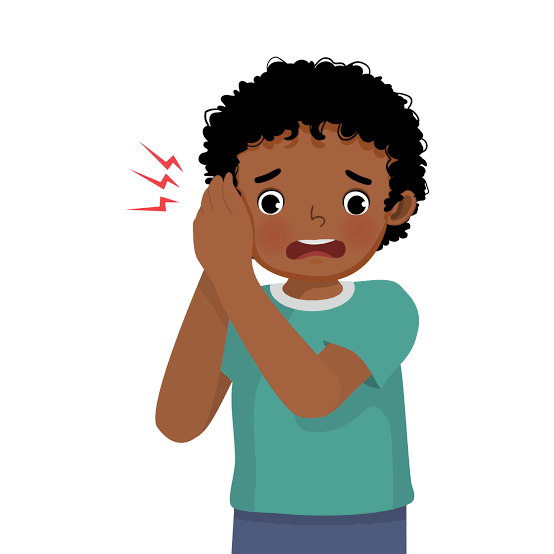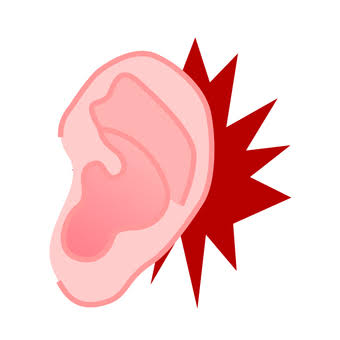For those who have labyrinthitis, an inner ear ailment, it can be extremely unpleasant and unsettling. The definition, kinds, causes, risk factors, signs and symptoms, examinations, differential diagnosis, general management, and general prevention of labyrinthitis will all be covered in this extensive blog. We will also explore the possible advantages of homeopathy as a treatment for labyrinthitis, offering insightful information to anyone looking for non-traditional forms of care.

What is Labyrinthitis?
The illness known as labyrinthitis, which affects the inner ear’s labyrinth, is also known as vestibular neuritis or inner ear infection. Balance and spatial direction are under the labyrinth’s control. When it is inflamed, a number of unpleasant and confusing symptoms may follow. Symptoms of labyrinthitis usually include nausea, vertigo, and balance issues.
The Types of Labyrinthitis
Labyrinthitis comes in two primary varieties:
1. Vestibular Neuritis: The vestibular nerve’s irritation is the main cause of vestibular neuritis. Dizziness, vertigo, and loss of balance are caused by this inflammation, which interferes with signals that are sent from the inner ear to the brain.
2. Viral Labyrinthitis: This condition is brought on by a viral infection, which frequently follows a cold or upper respiratory infection. It can impact the inner ear’s vestibular and cochlear regions, which can result in hearing loss and balance issues.
The Causes of Labyrinthitis
Several factors can lead to labyrinthitis, such as:
– Viral Infections: When a virus enters the inner ear, illnesses like the flu and the common cold can cause viral labyrinthitis.
– Bacterial Infections: Bacterial infections can potentially cause labyrinthitis by affecting the inner ear.
– Allergies: Allergies can result in inner ear irritation, which can aggravate the symptoms of labyrinthitis.
– Autoimmune Disorders: Labyrinthitis can result from a few different autoimmune diseases.
– Stress: Excessive stress can impair immunity and increase the risk of inner ear infections.
The Risk Factors of Labyrinthitis
Although anyone can get labyrinthitis, there are some risk factors that can raise your chance of getting the illness:
– Age: People over 60 have a higher risk of developing labyrinthitis.
– Weakened Immune System: Being susceptible to infections that might cause labyrinthitis is one of the signs of a compromised immune system.
– Recent Infections: You may be more susceptible to labyrinthitis if you have recently experienced upper respiratory infections.
– Smoking: Smoking raises the risk of inner ear infections and weakens the immune system.
Signs and Symptoms of Labyrinthitis
A variety of signs and symptoms, varying in severity, can indicate labyrinthitis. Typical signs and symptoms include of:
– Vertigo: A sharp spinning feeling that frequently comes with nausea and vomiting.
– Loss of Balance: Inability to maintain equilibrium and coordination, which may result in trips and falls.
– Nausea and Vomiting: Vertigo frequently causes nausea, which in turn frequently leads to vomiting.
– Hearing Loss: Tinnitus, or ringing in the ears, is a possible side effect of viral labyrinthitis. A continuous buzzing, ringing, or hissing sound in the ears is known as tinnitus.
– Vision Issues: During periods of labyrinthitis, one may have double or blurred vision.
– Ear Pain: A few people may feel discomfort or pain in their ears.
– Unsteadiness: A persistent, even in the absence of vertigo, sensation of unsteadiness.
Investigations of Labyrinthitis
It is important to see a doctor if you think you may have labyrinthitis so that you can get a correct diagnosis. Typical investigations consist of the following:
– Medical History: In order to determine the possible causes of labyrinthitis, your doctor will ask you about your symptoms and medical history.
– Physical Examination: To evaluate the function of your inner ears, a physical examination may involve balance and coordination tests.
– Audiometric Testing: This can be used for hearing can be used to assess tinnitus or hearing loss.
– Imaging Examinations: To rule out further underlying disorders, imaging examinations such as computed tomography (CT) scans or magnetic resonance imaging (MRI) may be advised in specific circumstances.
Differential Diagnosis for Labyrinthitis
Since labyrinthitis overlaps symptoms with different illnesses, a correct diagnosis is crucial. When making a differential diagnosis, the following conditions need to be taken into account:
– Ménière’s Disease: A persistent inner ear ailment that results in hearing loss, tinnitus, and frequent episodes of vertigo.
– Benign Paroxysmal Positional Vertigo: BPPV, or benign paroxysmal positional vertigo, is a condition that causes brief, abrupt episodes of vertigo when the head is moved.
– Migraines: Vestibular migraines, which some people get, might resemble the symptoms of labyrinthitis.
– Stroke: Rarely, a stroke may present with symptoms resembling labyrinthitis, underscoring the importance of a comprehensive assessment.
– Brain Tumor: Though uncommon, a brain tumor can cause vertigo and balance issues.
General Management of Labyrinthitis
Managing labyrinthitis typically involves addressing its underlying causes and alleviating its symptoms. General management strategies include:
– Rest: Rest is crucial, especially during acute vertigo episodes. Avoiding sudden head movements and stressful situations is recommended.
– Medications: Medications may be prescribed to manage symptoms, such as antiemetics to control nausea and vestibular suppressants to reduce vertigo.
– Home Care: Home remedies like keeping well-hydrated, using a heating pad on the affected ear, and maintaining a low-sodium diet can be beneficial.
– Physical Therapy: Physical therapy exercises can help improve balance and reduce the severity of symptoms.
– Stress Management: Reducing stress through relaxation techniques like deep breathing, meditation, and yoga can help alleviate symptoms.
– Antibiotics (if bacterial): If labyrinthitis is caused by a bacterial infection, antibiotics may be prescribed.
Homeopathy and Labyrinthitis
A complementary and alternative medical remedy called homeopathy is predicated on the idea of treating like with like. It is the process of inducing the body’s self-healing mechanisms through the use of greatly diluted natural chemicals. Research on the topic of homeopathic medicines for labyrinthitis is scarce, although several remedies are thought to be beneficial in addressing its symptoms.
Homeopathic Remedies for Vertigo
– Conium Maculatum: Reportedly effective in treating labyrinthitis accompanied by hearing loss and vertigo; three 200C potency pills should be administered daily.
– Gelsemium: Effective for labyrinthitis linked to infections with symptoms like vertigo; recommended as 10 drops of tincture or 30C potency three times a day.
– Kali Muriaticum: Useful for chronic ear conditions in labyrinthitis; suggested as 3-5 pills of 3C-12C potency three times a day.
– Chininum Sulphuricum: Addressing deafness and ear ringing in labyrinthitis; available in 1x-3x, 30C-200C potencies, taken as 2 tabs three times a day.
– Cocculus: Eases labyrinthitis with vertigo and nausea; recommended as 3-5 pills of 3C-30C potency three times a day.
General Prevention of Labyrinthitis
Although it can be difficult to totally prevent labyrinthitis, there are things you can do to lower your risk:
– Maintain Good Hygiene: You can lower your risk of viral labyrinthitis by washing your hands frequently and avoiding close contact with those who are sick.
– Control Stress: Using relaxation methods to lower stress can help maintain a strong immune system.
– Refrain from Smoking: If you smoke, you should think about giving it up to strengthen your immune system and general health.
– Become Vaccinated: Getting vaccinated against diseases like the flu will lower your risk of contracting infections-related labyrinthitis.
– Ear Protection: To avoid harming your inner ear, wear ear protection if you work in a noisy workplace or like loud hobbies.

Conclusion: Take Care of your Ears!
The inner ear condition labyrinthitis can be very upsetting and confusing. It is important to see a doctor when you have symptoms so that you can get the right diagnosis and treatment.
Although homeopathy can help relieve symptoms, you should speak with a qualified homeopath for individualized treatment options. The main ways to prevent labyrinthitis are to keep your ears clean, manage stress, and avoid loud noises.
You can also take charge of your health and well-being by learning about the condition, its causes, and the treatments that are available for it. Remember that you should always consult a doctor for a diagnosis and treatment that is appropriate.
Reach out to us for a Consultation
For any queries, reach out to us at contact@homeopathic.ai
This blog is for information purposes. It’s crucial to note that while homeopathy is a centuries-old practice with many adherents worldwide, always consult a qualified homeopath or medical professional before initiating any treatment.





